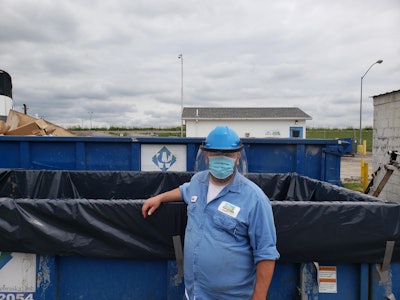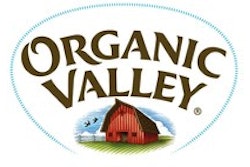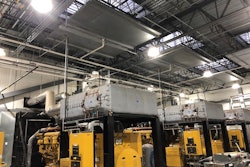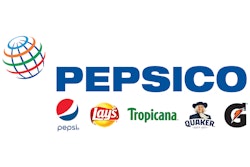
When a customer of Smithfield Foods made a product specification request a few years ago, the environmental team at its Crete, Neb. facility, was ready for action. The facility’s wastewater solids were dewatered via a centrifuge and then processed in the rendering operation. The customer’s change meant these solids were no longer approved to be part of the cooker feed stream. As a result, the facility was landfilling tons of material. Collecting, loading and hauling the solids was a labor-intensive and costly operation, causing a significant increase in solid waste from the facility.
At first, it was difficult to find a vendor that could handle the amount of wastewater solids generated, says James Garr, wastewater supervisor for Smithfield Foods. And frequent hauling costs added to the expense.
With assistance from Waste Connections, a recycling provider, the facility found a composting operation, Soil Dynamics, in Omaha, Neb. This operation accepts and processes the high-volume waste stream, and it evaluated and accepted bedding, smokehouse ash and other organics that were previously landfilled.
Completed in just three months and implemented in February 2019, the project yielded more than 9.6 million lbs per year solids waste reduction.



















